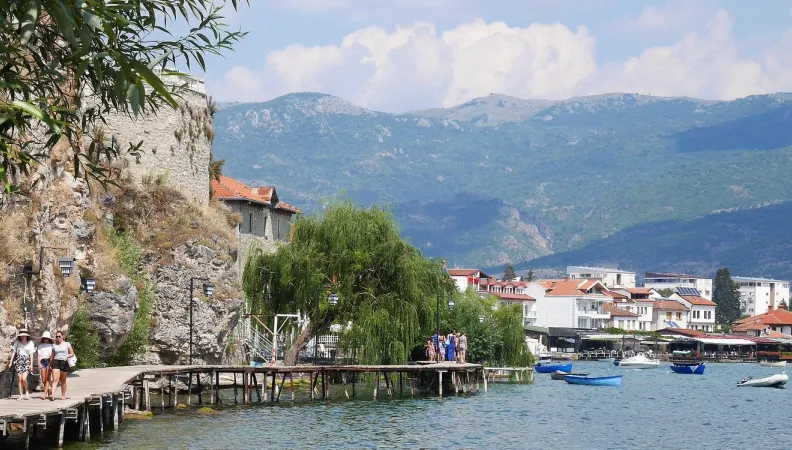Share the page
“AFD Offers a Wide Range of Financial and Non-Financial Tools in the Western Balkans”
Published on

Starting a new chapter in Eastern Europe, AFD recently opened its Western Balkans office in Belgrade, Serbia. Its Director, Dominique Hautbergue handles activities in six countries: Albania, Bosnia and Herzegovina, Kosovo, Montenegro, North Macedonia and Serbia. Above all, he plans to take action on environmental and social issues. We find out more.
What form does AFD’s commitment take in the Western Balkans?
DH: Our operations are based on four areas: urban resilience and adaptation; the sustainable management of territories and the preservation of natural resources; support for the energy transition; and sustainable and inclusive economic and policy models.
AFD’s first two operations when it started in the region in 2018, aim to strengthen regional integration. The first focuses on supporting the Western Balkans Investment Framework (WBIF), a European financial facility involving the European Commission, European Union (EU) member countries, Western Balkans countries and the main bilateral and multilateral donors operating in the region.
The objective is to support projects related to connectivity, with a focus on strengthening transport and energy infrastructure, from both an environmental and social perspective, in the region and with European Union countries, with the aim of increasing economic integration.
The second involves supporting the Regional Youth Cooperation Organization (RYCO), which aims to promote cooperation between young entrepreneurs in the Western Balkans. This initiative has already assisted dozens of teams with the implementation of solidarity-based and innovative projects.
More generally, the mandate entrusted to AFD by the French Government aims to support the convergence of Western Balkan countries towards common standards with the EU and, ultimately, facilitate their accession to the EU.
What tools does AFD have at its disposal for its work in the Western Balkans?
DH: AFD has a wide range of financial and non-financial tools: Investment loans are either allocated with a State guarantee (sovereign) or are non-sovereign to support public operators without drawing on the borrowing capacity of States. Several loans have been provided in the water and transport sectors.
“Tripartite” cooperation based on sectoral public policy issues, between AFD, a donor and the local Treasury Department, meets the needs of partner countries. This budget support is appropriate for countercyclical support in times of crisis, such as the Covid-19 pandemic. Several loans have been provided in the region for the climate, gender equality and energy.
Credit lines or guarantees for public financial players to support ambitious public policies for local SMEs (Small and Medium Enterprises). Support to the private sector via our subsidiary Proparco. We provide high added-value expertise to meet the expectations of our counterparties.
Can you tell us a bit more about the office you manage and its achievements?
DH: AFD has had a regional office in Belgrade since September 2019 and will open an office in Albania in 2021. AFD’s activity is handled by a small team (six people) and is adding a new country every year. After allocating the first loans in Albania in 2019, Montenegro in 2020, then Serbia in 2021, the activity is expected to continue to be extended to North Macedonia, Kosovo and Bosnia and Herzegovina.
AFD allocates grants in six Balkan countries. We implement financing and operations for environmental issues and to support civil society. To date, six loans totaling over €310 million have already been allocated in Albania, Montenegro and Serbia. By the end of the year, an additional €180 million is to be added to AFD’s portfolio, bringing it to over €490 million (excluding grants). In the coming years, the annual rate of development should be in the region of €150-€250 million.
